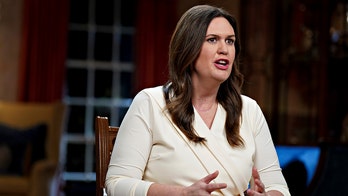Despite her strong start as the presumptive Democratic nominee, Vice President Kamala Harris' policy vision remains largely undefined. However, her recent announcement of specific policy ideas sheds some light on her plans for an 'opportunity economy.'
Vice President Kamala Harris has enjoyed a strong first month as the presumptive Democratic Party nominee for the 2024 presidential race. With the advantage of not having to campaign through a primary and compete against other party members, Harris has faced less scrutiny and has been less forthcoming about her policy stances. But last week, she presented the beginning of a policy vision with several distinct policy ideas.
Harris' proposed 'opportunity economy' includes the following:

Kamala Harris' Proposed 'Opportunity Economy': A Closer Look
* A ban on "price gouging" for groceries and food.
* A $25,000 subsidy for first-time homebuyers.

Kamala Harris' Proposed 'Opportunity Economy': A Closer Look
* A $6,000 child tax credit for the first year of a baby’s life.
* A governmentally imposed cap on prescription drug costs.

Kamala Harris' Proposed 'Opportunity Economy': A Closer Look
The most controversial proposal is the ban on "price gouging," which would authorize the Federal Trade Commission to impose large fines on grocery stores that arbitrarily deem prices to be "excessive." This represents a significant expansion of the regulatory state and has been met with stern rebukes from even far-left media outlets.
Price controls have a well-documented history of counterproductive results. They disincentivize production, disrupting the market and failing to achieve the desired goal of sustainable low prices. The government cannot impose prices; they are determined by the interplay of supply and demand.
Harris' proposed cap on prescription drug costs is also problematic. While reducing prescription drug costs is a valid concern, government-imposed price caps would likely lead to shortages and diminished innovation in the pharmaceutical industry.
The $25,000 subsidy for first-time homebuyers is an attempt to address the rising cost of housing but is likely to have minimal impact. Such subsidies tend to benefit wealthier individuals and drive up housing prices, exacerbating the affordability issue in the long run.
The $6,000 child tax credit is a direct cash transfer that could provide temporary relief to families with young children. However, it does not address the root causes of income inequality and poverty.
Harris' policy proposals are shortsighted and fail to address the fundamental economic challenges facing the nation. Her emphasis on government intervention and price controls ignores the principles of free markets and could lead to unintended consequences that harm consumers and businesses.
Critics argue that Harris' lack of specificity on issues such as tax policy, government spending, deficit reduction, and entitlement reform suggests a lack of understanding or commitment to addressing these critical issues.
While the media and the public await further details of Harris' economic plans, her initial proposals raise concerns about her commitment to free markets and her ability to effectively address the challenges facing the economy.










